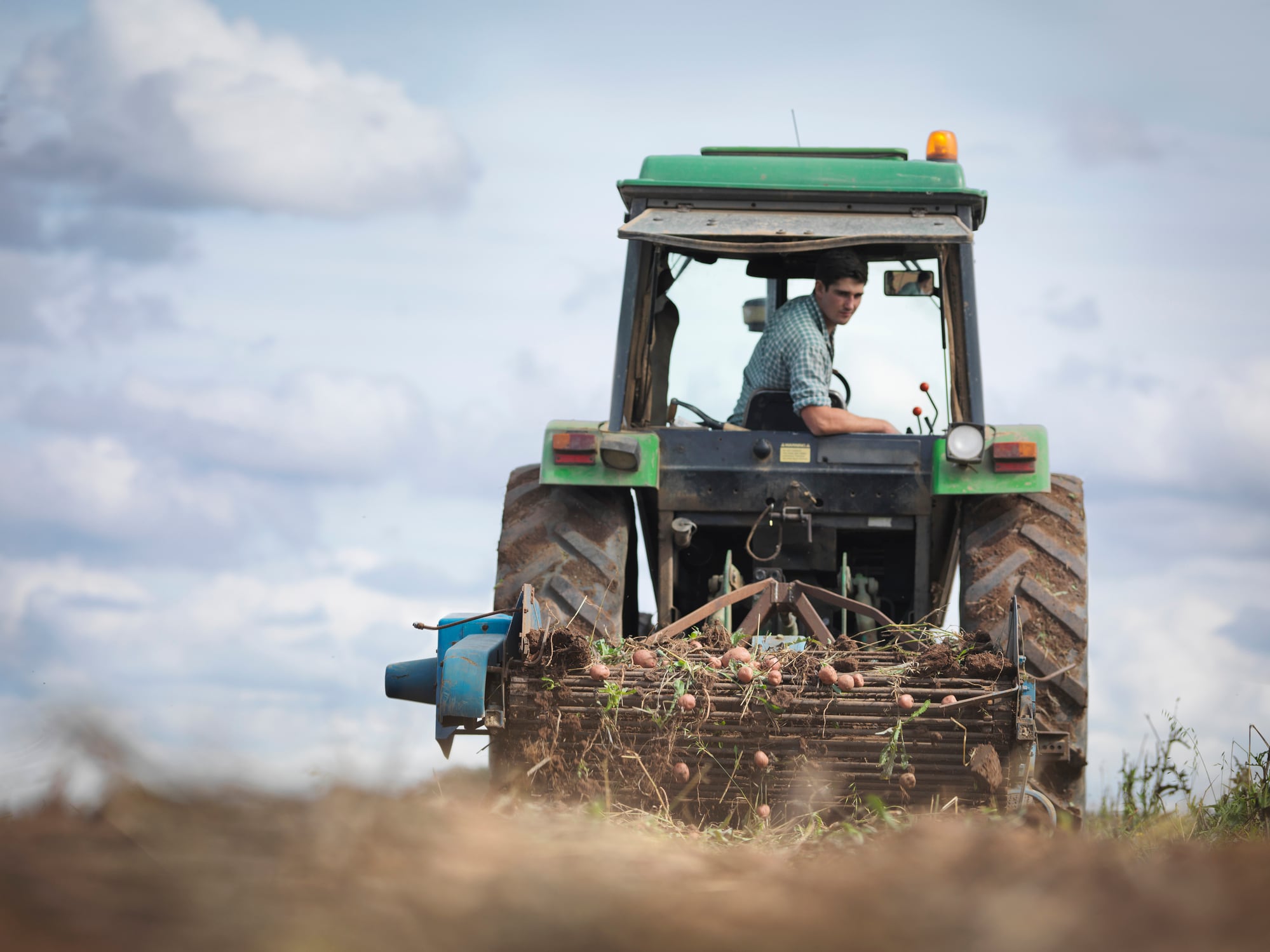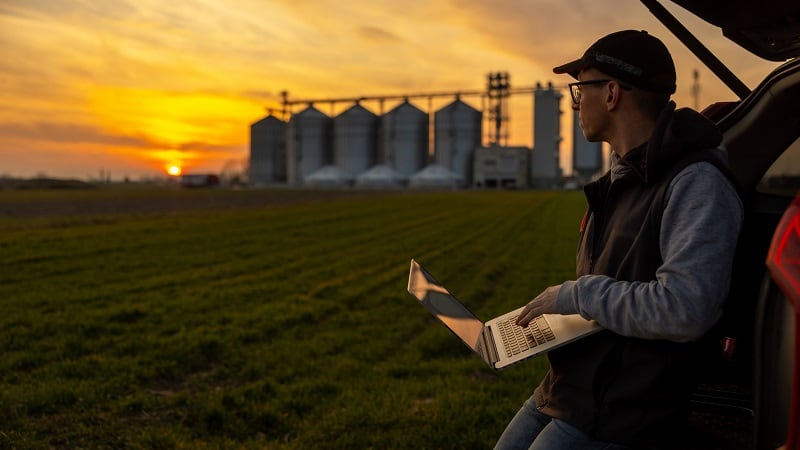UK tractor registrations in the first quarter of 2025 dropped by 23% compared to the previous year, reaching their lowest level in over 25 years.
Leading manufacturers including John Deere, CNH Industrial, and AGCO have all reported substantial year-over-year sales declines for tractors, combines, and other farm equipment across the UK and global markets.
UK farmers complain of a “perfect storm” of cost inflation, policy shifts, market volatility, and climate risks threatening farm viability and rural economic stability.
Red Flag Alert data from Begbies Traynor, a firm specialising in corporate restructuring, finds that in Q1 2025 there are 222 companies involved in agricultural machinery – making, selling or leasing – in significant financial distress, increasing from 150 at the end of 2024.
That’s increasing the need for financing as some companies in the space of new technologies are being swept up during administration, the company sees. There’s also a growing need for alternative lenders to support companies shipping new technologies abroad, as traditional lenders are less likely to take on the risk.
Various financial solutions
Begbies Traynor Group is offering various financial solutions tailored to the agricultural industry in the UK, including asset finance for machinery and equipment, invoice finance for managing cash flow, and general business loans for growth and expansion. It also provides access to agricultural finance options like asset refinance and agri-tech finance.
“There are a significant number of stakeholders to the agricultural sector, and financial challenges for one can lead to issues for others,” explained Martin Barron, partner at BTG Advisory.
“Agri-tech has the capacity to drive production efficiencies and innovation but needs investment and access to capital to make it happen,” he told AgTechNavigator.
“Farmers and their advisors take a long-term view, and in developing plans, will look to ensure they are sustainable. However, in a sector where prices for both inputs and outputs are set globally, crops and stock take time to mature and the costs of servicing existing debt can change quickly. In this climate even the best plans can come under pressure. The long-term plans for family farms have also been shaken by the UK Governments change to tax legislation on generational transfers of farming assets.
“The introduction of new technology to any sector is an exciting but also potentially challenging time for those who operate in in. The agricultural sector is no different. Understanding what is available, the benefits it can bring, and the challenges faced in operating it all need to be worked through – and that’s before the investment and operation costs and how these are to be funded are accessed. In most cases there will be a need to invest well ahead of the benefits being delivered.”
Financing to modernise production ‘very much alive’
Stuart Buchan, director agriculture & renewables and asset finance specialist at MAF Finance Group, added: “When a farm finds its income starting to fall, but costs not falling in line, there are financial options to support them. The same is true when looking to scale up or modernise production.”
For farms the most common form of lending is asset finance but there are other options too, he explained. One of these routes is secured land loans when clients do not meet their bank credit policies. An example would be one lender could lend 40% loan to land value.
“For instance, if a farmer had 200 acres at £10k per acre (£2m), we could raise £800k working capital on short-term loan basis either through repayments or interest only for up to three years. We have seen this kind of structure used when building an AD plant and it takes months or even years to complete before a paying tariff starts coming in. Whilst using this facility sometimes isn’t cheap, it is a short-term solution to capitalise the project giving it a chance to raise income that helps it stand on its own feet.
“Very recently we have provided farm loans for dairy cow sheds, a grain store, and a Merlo telehandler for different farms - so the market for this kind of lending is very much alive.”





